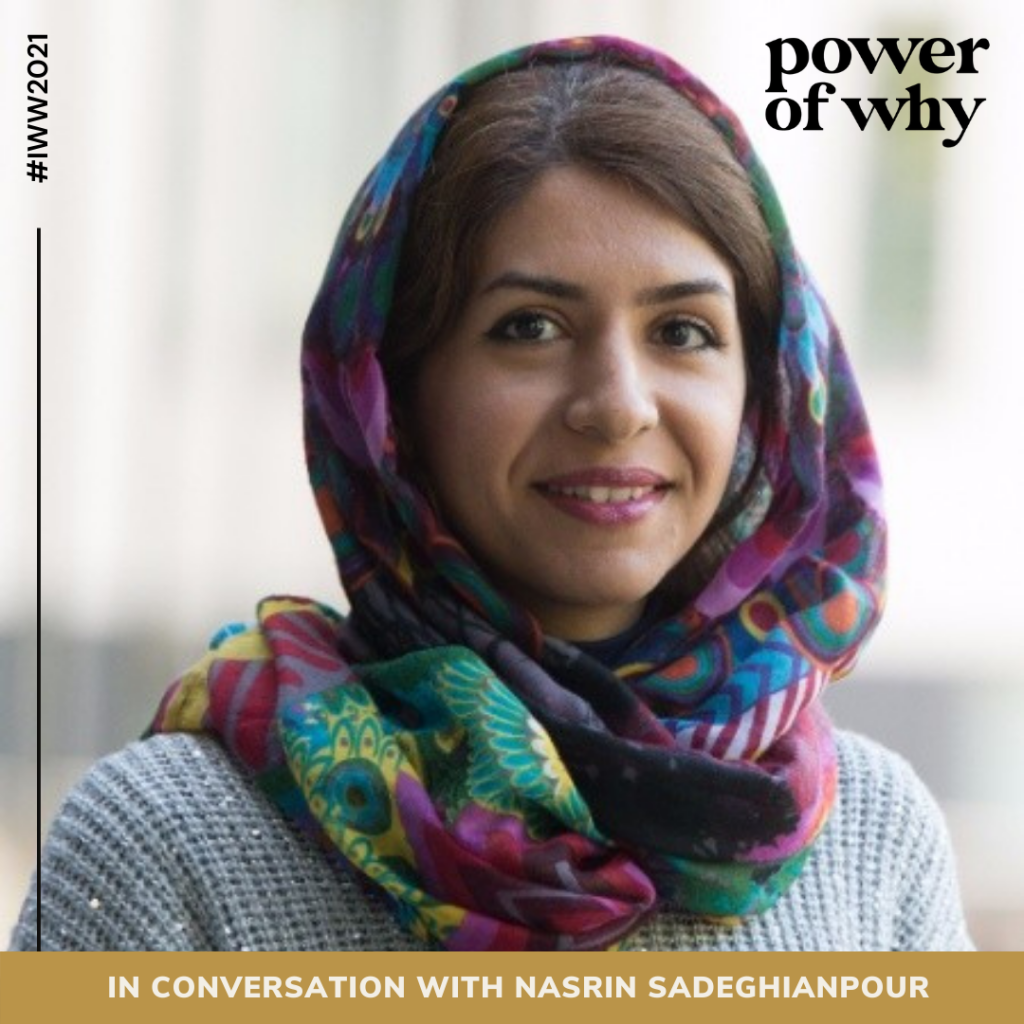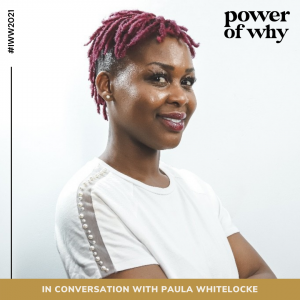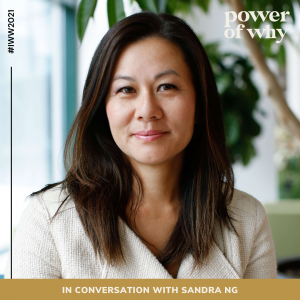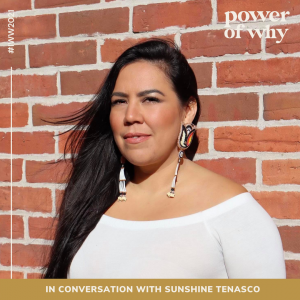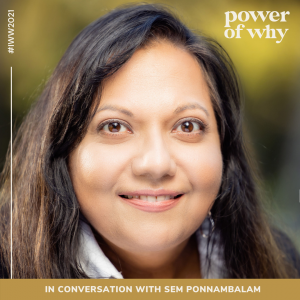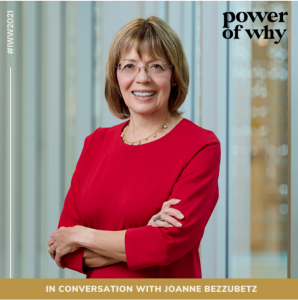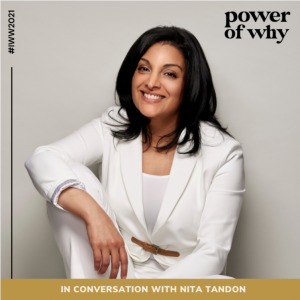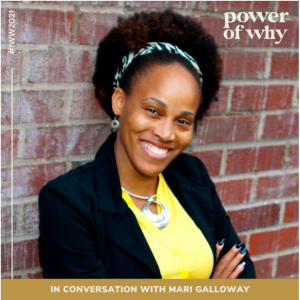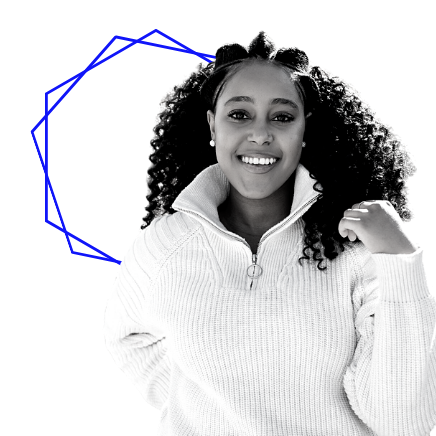This episode is for you if:
- You believe that the future of learning is holistic, borderless and accessible
- You feel overwhelmed by the consequences of climate change
- You moved to a new community and worry about standing out
- You’ve heard of renewable energy, but don’t know how it works
Looking for something specific?
[7:18] Facing your greatest fears
[9:00] The future of learning is interdisciplinary
[13:18] How Nasrin acquires new knowledge
[15:15] Online learning and its advantages
[23:43] Embracing change
[25:26] Why Nasrin decided to be visibly Muslim in non-Muslim societies
[35:20] How failure reduces uncertainty
This episode is brought to you in collaboration with Invest Ottawa. We teamed up to produce this special series in celebration of International Women’s Week, and the women leading in Ottawa. Visit investottawa.ca/iww to learn more.
Psst — Nasrin shared some great resources to help you embrace change, and understand the power of renewable energies in overcoming climate change. Check them out below, with links you can access right away.
Naomi: Give us some context on your early life.
Nasrin: I love travelling. I was born and raised in Iran. When I was 16, my parents moved to Malaysia, where we lived for 15 years. There I did my undergraduate and master’s degrees. I worked in the university for three years.
Given our climate problems, I decided that the best way to contribute to a solution is by using the power of artificial intelligence (AI) to help the world to transition towards renewable energy resources.
In 2014 I realized that we don’t have many experts that specialize in the intersection of artificial intelligence and power grids. So I moved to Belgium where I was enrolled by an IDLab as a Ph.D. student.
Naomi: What is an ID lab?
Nasrin: It’s an internet and data lab. They focus on leveraging data and Internet-of-Things (IoT) systems to bring intelligence to different applications.
One of the labs I joined focused on smart grid applications. They collect sensory data from smart appliances like electric vehicles across the grid, crunch that data, and build predictive AI models, to bring intelligent decision-making to the system.
Naomi: Why did you study in Belgium?
Nasrin: Belgium is focused on bringing renewable energy into the power grid. However, my dream of living in different countries was my main motivation to move. It was scary to migrate from Malaysia to Belgium. In Malaysia, I was a university faculty member with a large circle of friends and my family.
Naomi: You’ve said that the future is interdisciplinary, and that you aren’t afraid of stepping into new fields of research, because that is where the excitement of learning lies.
Nasrin: As a researcher, we should be flexible to the changes happening around us. The hard lines around different fields of research are becoming gray, and disciplines are interacting with each other.
Naomi: How did you get involved with BluWave-ai?
Nasrin: When choosing where to work, I weigh the people as much as the status of my responsibilities. At BluWave-ai, I have a great mentor that I learn with every day.
We become an average of the people we interact with. It’s risky to indulge and work with new technologies for the first time. BluWave-ai is brave enough to take that risk.
Naomi: You talk about different disciplines interacting with one another. The Paradox of Specificity shares how important it is to focus on one area.
Nasrin: As an undergrad student, I wanted to learn everything. As a Ph.D. student, I realized it’s more important to deliver a product or project in a timely manner, and learn what you need to pull it off.
Start with the simplest idea and build on top of it. Technology moves fast. Universities struggle to keep up. Research and development used to be done in university labs; now they’re led by startups.
Naomi: What’s your learning practice?
Nasrin: I benefit from online learning because I can control its pace. You don’t have to be in a privileged situation to access a high-quality education.
I used to have a notification go off whenever a journal would use a particular keyword. There were so many notifications that I stopped. I try to read from the IEEE Transactions journal.
Naomi: Where is this world of renewable energy going?
Nasrin: The smart grid is a 100-year-old technology used to generate electricity safely. This electricity was pumped into transmission lines that went into our homes, where we consume it.
Now, there is a layer of intelligence enabled by communications over the grid, through IoT infrastructure. As a user, you’re not just consuming the final product anymore.
Think of when you are asked to switch certain appliances off at certain times, when they consume the most power, to reduce the overall energy demand. We have become active consumers of electricity.
A challenge is that the output of renewable energies is not controllable. We can’t control when the sun shines or when the wind blows. The previous mentality was that we must generate as much energy as we need. Now, we must consume what’s available. This brings a lot of variables into the system.
With renewable energy, we must manage the uncertainties associated with its production. As we move towards the electrification of our transport, we introduce a tremendous amount of load to our already exhausted system.
All of this mandates us to move from traditional, model-based controls, into data-driven models, where we train AI by feeding it data about these new systems. It can learn from them, recognize patterns, and help us control our systems using this new intelligence.
Naomi: In our last conversation, you said that we are a consequence of our choices.
Nasrin: We are who we choose to be. I am proud of embracing change and following my dreams. It has made me a stronger person, and empowered me to build relationships with colleagues and friends around the world.
Differences no longer scare me. They attract me. I love learning about people. I have chosen to be visibly Muslim in many non-Muslim societies by wearing my hijab. I always tell myself, you either don’t wear it, or you wear it with confidence.
I believe that we can hold onto what we believe in one hand, and share it with the other. I encourage younger generations to not just tolerate differences but to love and embrace them.
Naomi: Can you share more about your choice to be visibly Muslim?
Nasrin: To tell you the truth, I still have hesitations. As a human being, you must constantly reexamine your choices, and not be afraid of putting new information into your system and evaluating it. This is what we do in data science. When new data comes in, our artificial intelligence system upgrades itself.
Naomi: How do you evaluate your beliefs?
Nasrin: As long as we respect and embrace each other, we can live happily together. We all share the same planet.
Working in a startup that is aggressive with new technologies, we have to trust and respect each other’s judgment. That is how we move towards something that hasn’t been done before.
Everybody knows something, but nobody knows everything. We can always learn from each other.
Naomi: How do you define success?
Nasrin: The road to becoming an expert starts with feeling stupid. Being successful means being useful to this world. How we impact the world defines us as people.
Being successful should not be looked at as a destination. It’s a journey. When you examine your life, do you feel happy, accomplished, fulfilled? Or do you feel regret?
Naomi: How do you approach risk?
Nasrin: There is always risk associated with bettering yourself. To what extent can you reduce that uncertainty? I vote for doing things. If you fail, at least you have the experience to measure and reduce uncertainty.
When I decided to move to Belgium, I learned about their culture. My CEO Devashish Paul says that you never know when the party is, so make sure you’re dressed up and ready.
Naomi: What helps you navigate uncertainty?
Nasrin: The world is experiencing a big challenge. It has also taught us many things. Look at our lifestyles. We have learned how to efficiently work from home. I talk with my friends and family more often. Humans adapted to the pandemic.
Climate change is equally dangerous. However, we are not taking it as seriously as the pandemic. The chances of the world coming to an end because of the pandemic is zero, but because of climate change is high. Being open to doing things differently, to adapting and being flexible, has helped me in this transition.
This episode is brought to you in collaboration with Invest Ottawa. We teamed up to produce this special series in celebration of International Women’s Week, and the women leading in Ottawa. Visit investottawa.ca/iww to learn more.



